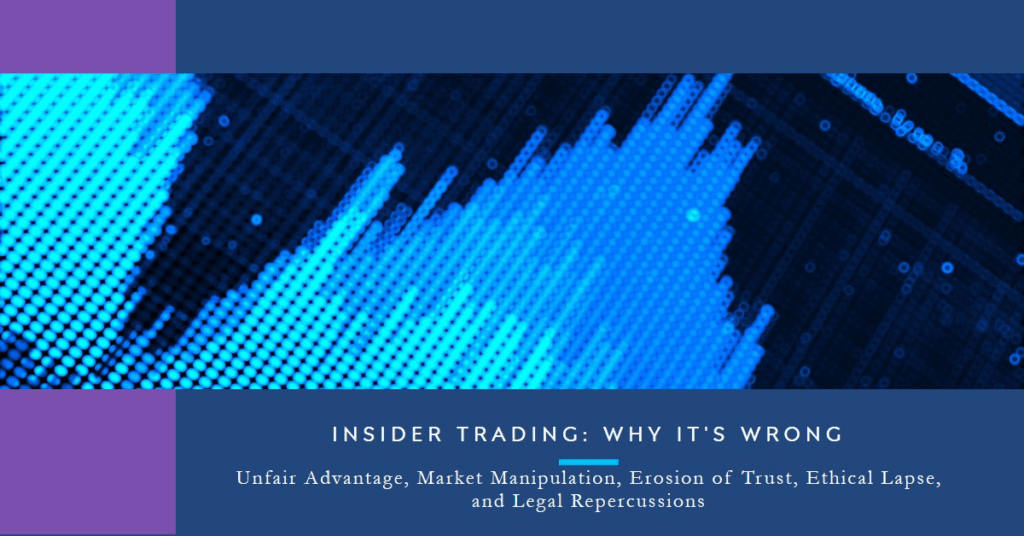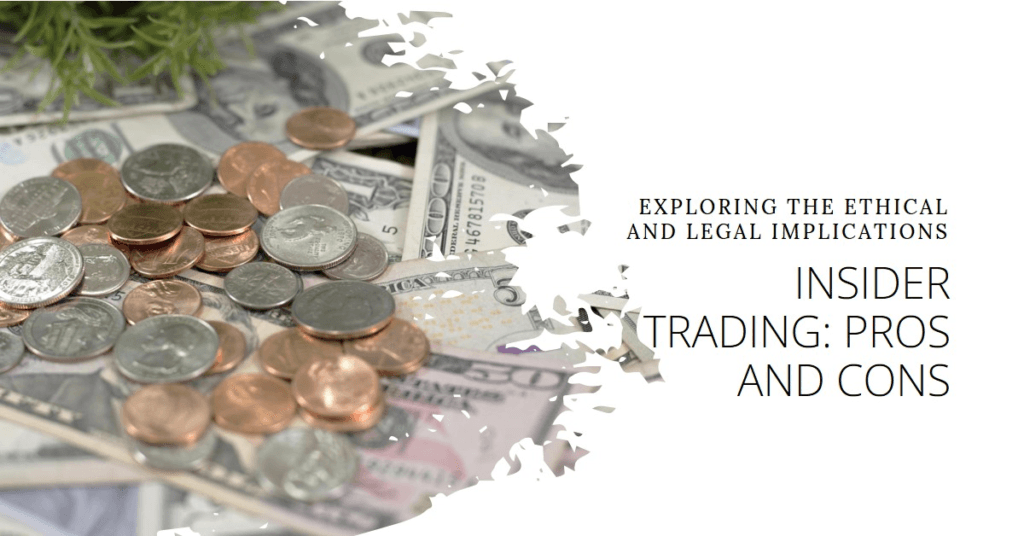The Securities and Exchange Board of India (Sebi) plays a critical role in safeguarding the integrity and fostering the growth of the Indian capital markets. A key aspect of this responsibility lies in deterring insider trading, a practice that erodes investor confidence and disrupts fair market equilibrium. Sebi has implemented a comprehensive strategy to combat this unethical behavior, encompassing:
- Robust Regulatory Framework: The Prohibition of Insider Trading (PIT) Regulations, 2015 established by Sebi provide a clear definition of unpublished price-sensitive information (UPSI). These regulations strictly prohibit insiders from trading on the basis of such information, ensuring a level playing field for all market participants. Recent amendments in 2022 further strengthened Sebi’s oversight by placing limitations on insider trading in mutual funds.
- Enhancing Transparency: Sebi mandates listed companies to implement a comprehensive Code of Fair Disclosure and Conduct. This code requires timely and accurate disclosure of all material information that could potentially impact the stock price. By ensuring equal access to such information for all investors, Sebi promotes transparency and facilitates informed investment decisions.
- Harnessing Technology: Sebi actively leverages technological advancements to monitor trading activities. Sophisticated software is employed to analyze trade patterns and identify anomalous transactions that might be indicative of insider trading. This data-driven approach significantly enhances Sebi’s ability to investigate and prosecute potential violations.
- Imposing Stringent Penalties: Insider trading carries significant financial repercussions. Sebi has the authority to impose substantial fines on offenders, ranging from ₹10 lakh to ₹25 crore, or three times the profits garnered from the illegal activity, whichever is higher. These hefty penalties serve as a strong deterrent against insider trading.
- Addressing the Impact of Rumors: Recognizing the potential for rumors to create an unfair advantage, Sebi has proposed a framework to determine an “unaffected share price” in instances where a rumor triggers a significant price movement and is subsequently confirmed by the company. This framework helps to differentiate legitimate trading activity from actions fueled by unsubstantiated rumors.
Conclusion
Sebi’s comprehensive strategy, encompassing robust regulations, transparency initiatives, technological advancements, and stringent penalties, aims to create a more equitable and well-functioning Indian capital market. By effectively mitigating insider trading, Sebi fosters an environment that protects investor interests and promotes sustainable growth within the financial sector.
Let’s understand what is insider trading?

Insider trading refers to the unethical practice of buying or selling a company’s securities (stocks, bonds, options) while in possession of material, non-public information about that company. This information can significantly impact the stock price, giving the insider an unfair advantage over other investors who lack this knowledge.
Here’s a breakdown of key aspects of insider trading:
- Material Information: Information is considered “material” if it has the potential to significantly influence an investor’s decision to buy or sell a company’s stock. Examples include upcoming mergers, acquisitions, major product launches, or unexpected financial results.
- Non-Public Information: The crux of insider trading lies in the fact that the information is not yet publicly known. It’s typically confidential and restricted to a select group within the company, such as senior management, board members, or legal counsel.
- Types of Insiders: “Insiders” are not limited to company employees. They can also be accountants, lawyers, investment bankers, or anyone who has a fiduciary duty to keep such information confidential. Additionally, someone who “tips” this information to another person who then trades based on it can also be liable for insider trading.
- Legality vs. Illegality: The key distinction lies in information disclosure. It’s perfectly legal for insiders to trade their company’s stock, but only if they do so after all material information has been publicly disclosed. Regulatory bodies like the Securities and Exchange Commission (SEC) in the US and SEBI (Securities and Exchange Board of India) mandate timely disclosure to ensure a level playing field for all investors.
- Impact: Insider trading erodes investor confidence in the market’s fairness and integrity. It discourages participation from long-term investors and hinders the efficient allocation of capital.
- Detection and Penalties: Regulatory bodies employ sophisticated surveillance techniques to detect suspicious trading patterns. Individuals found guilty of insider trading face hefty fines, imprisonment, or both.
Here are some additional points to consider:
- Gray Areas: Distinguishing between legitimate investment research and illegal insider information can be complex. This is why companies often have strict policies outlining what information employees can access and trade upon.
- Market Impact: While some argue that insider trading can increase market efficiency by incorporating new information quickly, the ethical concerns and potential for manipulation outweigh these benefits.
Understanding insider trading is crucial for anyone participating in the financial markets. By promoting fair and transparent practices, regulatory bodies aim to create a healthy investment environment that benefits all participants.
Insider trading is Right or Wrong?
Insider trading is definitively considered wrong. Here’s why:

- Unfair Advantage: It creates an uneven playing field. Insiders have access to information the general public doesn’t, allowing them to make profitable trades while others lack that knowledge. This is inherently unfair and undermines investor confidence in the market.
- Market Manipulation: Insider trading can artificially inflate or deflate stock prices based on non-public information. This manipulation disrupts the natural flow of supply and demand within the market.
- Erosion of Trust: When investors suspect insider trading is prevalent, they become hesitant to participate. This discourages investment and hinders the efficient allocation of capital within the economy.
- Ethical Lapse: Insiders have a fiduciary duty to act in the best interests of the company and its shareholders. Trading on confidential information breaches this trust and is considered unethical business practice.
- Legal Repercussions: Insider trading is a criminal offense in most jurisdictions. Regulatory bodies like the SEC and SEBI have the authority to impose significant fines and jail time on those convicted.
In contrast to these negative aspects, there are some fringe arguments that propose insider trading might benefit the market by:
- Faster Information Dissemination: Some argue it speeds up the process of incorporating new information into stock prices. However, this often comes at the cost of manipulation and unfair advantage.
- Increased Market Efficiency: Theoretically, it could lead to a more efficient market where prices reflect all available information. However, this efficiency is achieved through unethical means and undermines trust in the system.
The overwhelming consensus is that the negative consequences of insider trading far outweigh any potential benefits. Regulatory bodies around the world have robust measures in place to deter this practice and protect the integrity of the financial markets.
Advantages and Disadvantages of Insider Trading

While insider trading is almost universally considered wrong due to its ethical and legal implications, there are some fringe arguments that it might have some advantages for the market. Here’s a breakdown of both sides:
Advantages (Rarely Supported)
- Faster Information Dissemination: Proponents argue that insider trading can lead to quicker incorporation of new information into stock prices. This could theoretically make the market more responsive to new developments. However, critics counter that this often happens through manipulation and doesn’t create a fair or reliable price discovery process.
- Increased Market Efficiency: In theory, widespread insider trading could lead to a more efficient market where prices reflect all available information. This would eliminate price discrepancies based on lack of knowledge. However, this efficiency comes at the cost of a rigged system that undermines investor trust and discourages participation.
Disadvantages (Widely Recognized)
- Unfair Advantage: Insiders have a significant advantage over other investors due to their access to confidential information. This creates an uneven playing field and discourages participation from those who lack such knowledge.
- Market Manipulation: Insider trading can be used to artificially inflate or deflate stock prices based on non-public information. This manipulation disrupts the natural flow of supply and demand, leading to inaccurate price signals.
- Erosion of Trust: When investors suspect insider trading is prevalent, they lose confidence in the market’s fairness. This discourages investment and hinders the efficient allocation of capital within the economy.
- Ethical Lapse: Insiders have a fiduciary duty to the company and its shareholders. Trading on confidential information breaches this trust and is considered unethical business practice.
- Legal Repercussions: Insider trading is a criminal offense in most jurisdictions. Regulatory bodies have the authority to impose significant fines and jail time on those convicted.
Overall:
The disadvantages of insider trading far outweigh any potential benefits. Regulatory bodies around the world work diligently to deter this practice and protect the integrity of the financial markets. They achieve this through measures like:
- Strong Regulatory Frameworks: Clear definitions of insider trading and strict penalties act as deterrents.
- Transparency Initiatives: Companies are mandated to disclose material information promptly to ensure a level playing field.
- Technological Surveillance: Sophisticated tools are used to analyze trading patterns and identify suspicious activity.
By promoting fair and transparent practices, regulators aim to create a healthy investment environment that fosters trust and benefits all participants.
Here are some strategies for how to stop insider trading?

Completely eliminating insider trading is a difficult task, but there are several strategies that can significantly reduce its occurrence and make it easier to detect. Here are some key approaches:
Stronger Regulatory Framework:
- Clear Definitions: Regulatory bodies like SEBI (India) and SEC (US) can establish clear and comprehensive definitions of what constitutes insider trading and material non-public information (MNPI). This leaves less room for gray areas and strengthens legal enforcement.
- Increased Penalties: Hefty fines, disgorgement of profits gained through insider trading, and even jail time can act as a strong deterrent against this crime.
Enhanced Transparency:
- Timely Disclosure: Companies can be mandated to disclose all material information promptly and accurately. This ensures all investors have access to the same information at the same time.
- Stricter Insider Lists: Companies can maintain comprehensive insider lists that identify everyone with access to MNPI. This allows for closer monitoring of their trading activities.
Technological Advancements:
- Trade Surveillance: Regulatory bodies can employ sophisticated algorithms and data analysis tools to identify unusual trading patterns that might be indicative of insider activity.
- Leak Prevention Technology: Companies can utilize software and protocols to restrict access to confidential information and prevent leaks that could be exploited for insider trading.
Promoting a Culture of Ethics:
- Employee Training: Companies can implement comprehensive training programs to educate employees about insider trading regulations, the importance of ethical conduct, and the potential consequences of violating these rules.
- Whistleblowing Programs: Establishing anonymous reporting mechanisms allows employees to report suspected insider trading without fear of retaliation. This encourages employees to be part of the solution.
International Cooperation:
- Information Sharing: Regulatory bodies around the world can collaborate and share information about suspected insider trading activities. This broader view can help identify and prosecute cross-border schemes.
- Harmonized Regulations: Developing consistent international standards for defining and prosecuting insider trading can create a more level playing field and make it more difficult for individuals to exploit loopholes in different jurisdictions.
By implementing a multi-pronged approach that combines stricter regulations, improved transparency, technological advancements, and a strong emphasis on ethics, authorities can significantly reduce the incidence of insider trading and create a fairer, more trustworthy investment environment.
#epicinfinite #epicarticle #epicblog
Do you have any questions about insider trading? Leave a comment and I’ll do my best to answer them.










